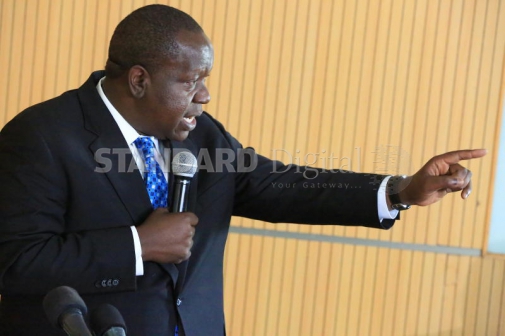×
The Standard e-Paper
Fearless, Trusted News

Vice chancellors who have misappropriated university funds should prepare to go to jail.
Education Cabinet Secretary Fred Matiang’i said the Ethics and Anti-Corruption Commission (EACC) had been invited to investigate all crimes committed in universities.